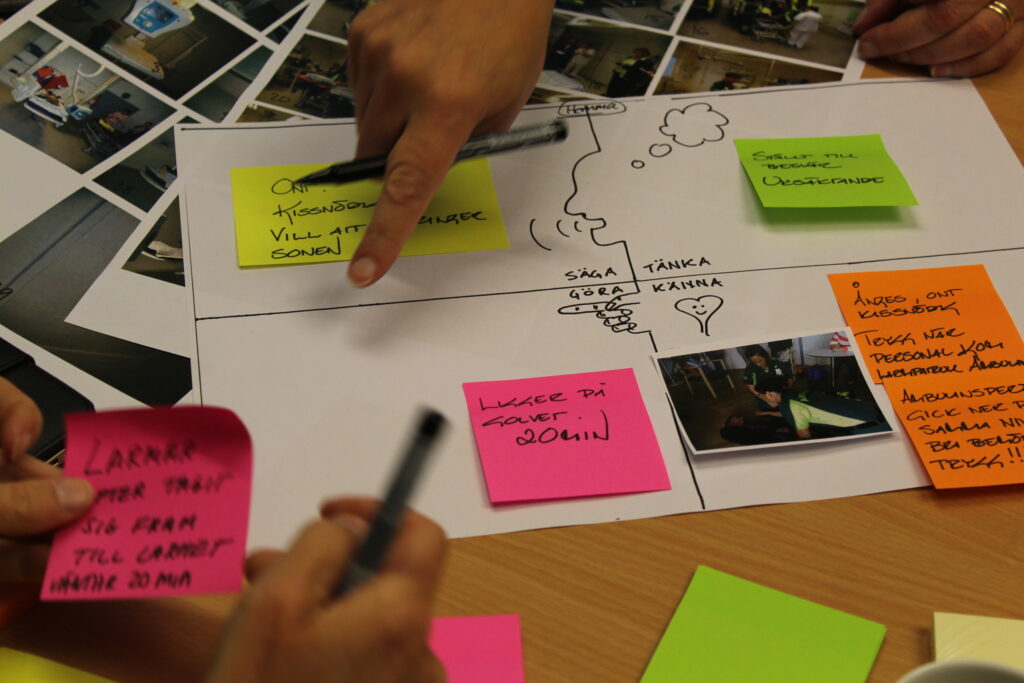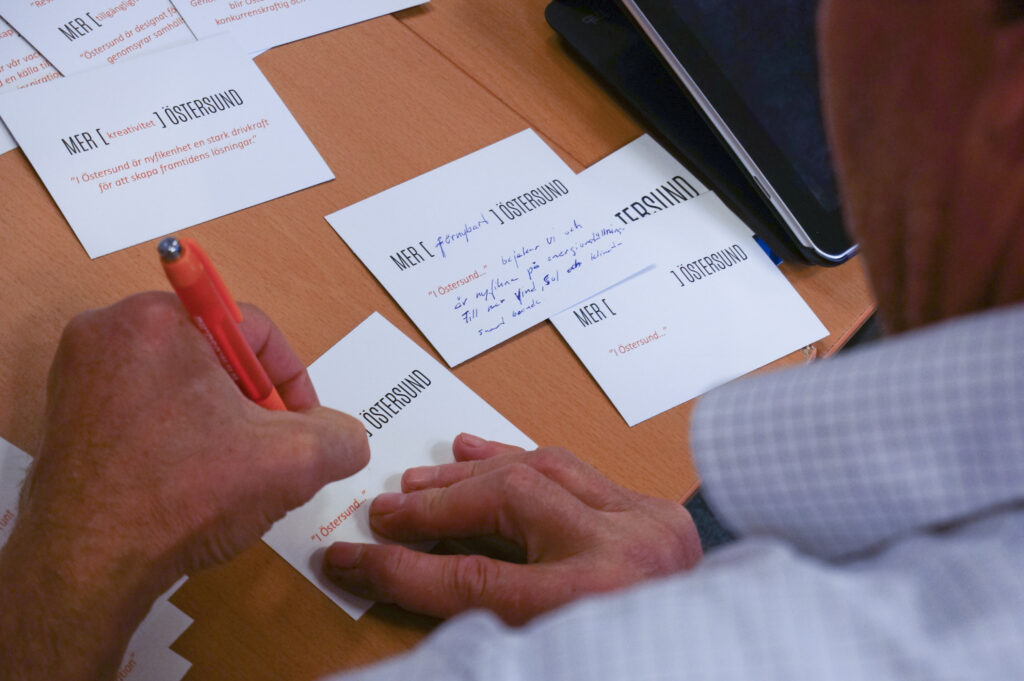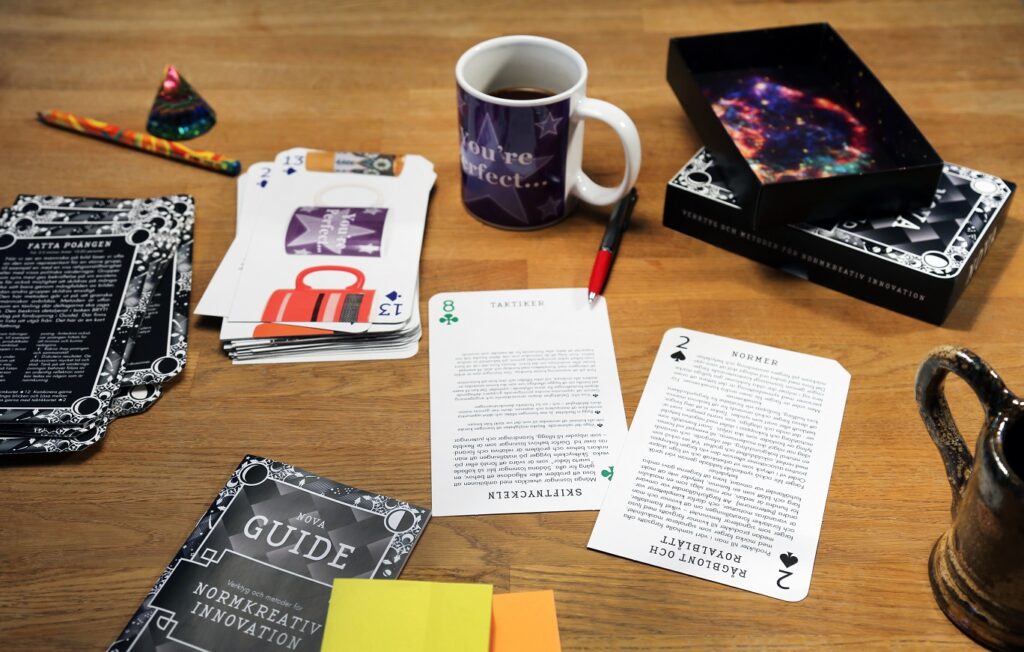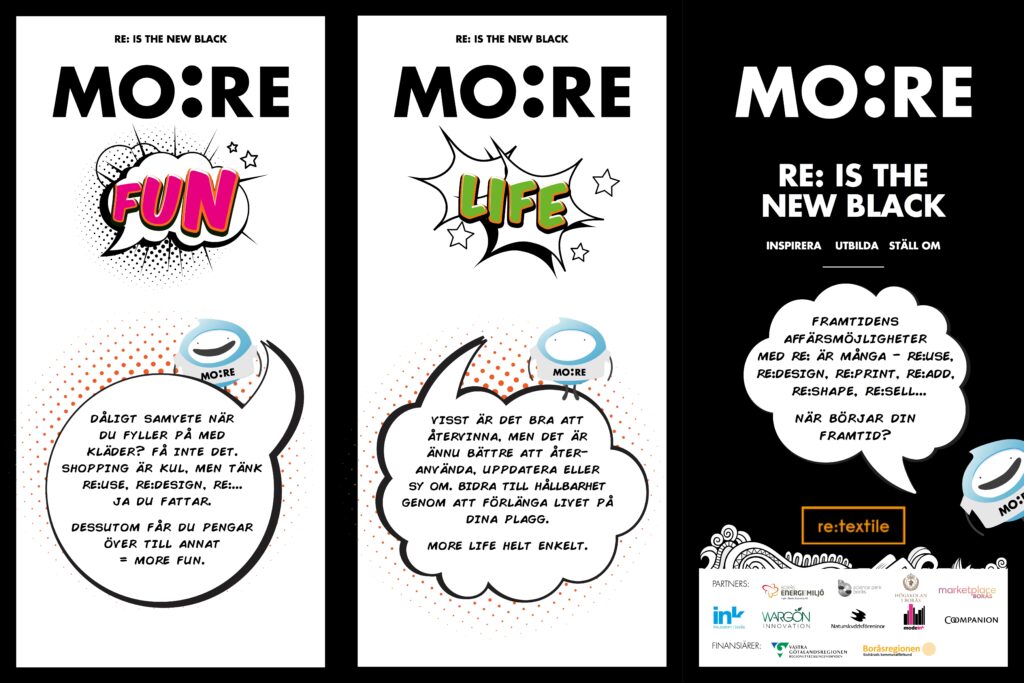Sustainable development

Awarded!
Experio Lab
Experio Lab, a national centre for patient-oriented service innovation and part of the Värmland County Council, is a unique business that contributes to a more needs-focused and quality care by putting the patient’s experience at the centre. Design as a method engages professionals, patients, relatives and others on equal terms in hands-on projects within patient security, mental health, chronic illness and much more. The results are concrete improvements that increase patient benefit, and lead to cultural change with more inquisitiveness, courage and empathy, as well as less solidified work methods.
Since the start of Experio Lab as a learning project, the business has now become permanent as a long term and strategic resource within the County Council. Several other counties around the country have established, or are about to establish their own environments, which is a clear sign that design plays an increasingly prominent role in social development.
Awarded!
Mer [*] Östersund
The year was 2013 and the city’s growth programme was due for revision. We needed something new. Through the Summer Design Office, we commissioned eight design students from all over Sweden to design a concept for Östersund’s growth programme. The students had free hands to design More [*] Östersund. The concept is meant to inspire curiosity and participation through the residents simply replacing the star [*] with what they want to create more of in order to contribute to a more sustainable and attractive Östersund.
More [*] Östersund is now the City’s growth concept that is going to permeate through all municipal planning. Thanks to the usefulness of the concept, it is now being discussed how the city’s businesses will contribute to creating More [*] Östersund, whether it be at a nursing home or at the Planning Office. Through participation, creativity and a permissive climate for change and citizen driven sustainable development, Östersund is set to become a national and international model for innovative development.


Nova
Nova is a card based support material for norm creative innovation – for the creation of inclusive, equal and accessible solutions. Products, services, environments and other solutions are limiting to people when they have been created based on an all too narrow understanding of people’s real situations and needs. One reason is that design and innovation companies, among others, often lack of knowledge the influence of discriminating norms and values. This has been brought to light by the innovation agency Vinnova, who since 2013 have been running the programme Normkritisk Innovation.
Re:textile – re: is the new black
Every person in Sweden has an average of 29 kilos of clothes, approximately 70 pieces. Many of these are “inactive”, but can be given new life. Professional design is the key to success. Such was the result of a study conducted by the Region of Västra Götaland/Science Park Borås/University of Borås to develop sustainable fashion, together with prototypes that designers had made in Studio Re:design. That kicked off a partnership between many players on a regional level surrounding design driven circular economy, and in 2015 Re:textile was launched. One year later a number of collections have been developed by fashion designers who show how to professionally update clothes using new techniques.
Smaller textile companies in Sweden have made machines and systems that can be used on industrial scale to print, dye, embroider and reconstruct. In June 2016, Re:textile Gallery opened at the Textile Fashion Center in Borås. This is a place for fashion companies to gain inspiration and conduct workshops on design for re:design, prototype development for updates, and more. The aim is to demonstrate how innovative design, circular economy and a changing consumer behaviour means new business opportunities.
